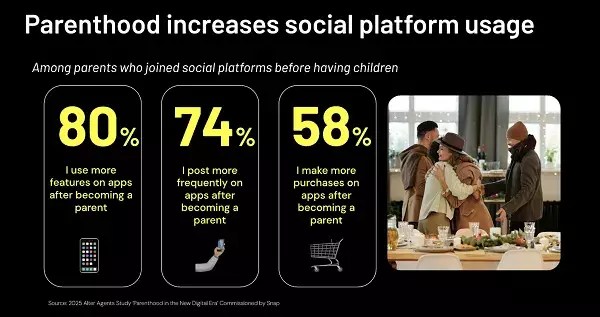Parenthood, an experience traditionally marked by physical milestones and emotional growth, is now profoundly intertwined with digital realms. As society navigates through a digital age, the relationship between parents and social media has become increasingly complex, nuanced, and reflective of broader cultural shifts. The narrative that social media usage diminishes once children arrive is overly simplistic; modern parents demonstrate a transformative engagement rather than a reduction. Instead of withdrawal, there is a dynamic reorientation—where social platforms serve as vital tools for connection, information, and shared experiences.
The advent of digital communication has redefined what it means to be an engaged parent. For many, social media has transitioned from mere entertainment to an indispensable resource. Sharing milestones, seeking parenting advice, and discovering new products are now integral parts of daily routines. The proliferation of parent-specific groups online underscores the community-driven aspect of contemporary parenting. These platforms provide emotional support, practical tips, and even a sense of belonging in a world where physical interactions may be limited by time constraints or geographical barriers.
Furthermore, the digital environment offers an accessible way for parents to document their children’s early years. Baby photos, videos, and anecdotes serve as shared tokens of intimate family moments, strengthening bonds within social networks. Notably, for digital-native generations of parents—those who grew up immersed in social media—this behavior feels natural and instinctive. Their comfort with online platforms fuels a continuous cycle of sharing and engagement, enhancing their parenting experience through digital intimacy.
Social Media as a Catalyst for Consumer Behavior and Family Interaction
The recent data from Snapchat and Havas Media highlights a compelling trend: parent users do not withdraw from social media but instead amplify their activity post-childbirth. This increased engagement isn’t limited to passive browsing; it encompasses active participation—posting updates, utilizing app features, and making online purchases. Interestingly, nearly 60% of parents report heightened social media use after welcoming a child, indicating that digital platforms fulfill multiple needs in their parenting journey.
Holidays and special occasions further intensify this digital activity, with holidays, birthdays, and summer vacations becoming peak moments for sharing. Yet, Black Friday emerges as a surprising leader in increased usage. This phenomenon reveals that parents leverage social media not just for social connection but as a digital shopping assistant. The collaborative shopping journey—sharing product discoveries with children, researching brands, and making collective decisions—reflects a significant shift in consumer habits. Children’s online interactions and exposure to targeted content influence purchasing choices, leading parents to become more receptive to advertising seen in their feeds.
This convergence of social discovery and commercial engagement signifies a broader trend: social media platforms serve as both community hubs and digital marketplaces for modern families. For brands and marketers, understanding these behaviors is crucial. Targeted advertising during periods of high activity—post-school hours, weekends, and seasonal sales—can effectively reach parents in their digital co-creation spaces.
Implications for Marketers and the Future of Parenting in the Digital Age
This evolving landscape demands that brands adopt more nuanced, empathetic approaches. Recognizing that social media is woven into families’ everyday routines allows marketers to craft messages that resonate authentically. The data suggests that advertising during moments of joint discovery—when parents and children are co-engaged—is especially potent. Content that supports shared experiences, such as kids’ product recommendations or family-centric promotions, can foster brand loyalty and influence purchase decisions.
Moreover, as family dynamics become increasingly digitized, the importance of responsible messaging escalates. Ensuring privacy, respecting boundaries, and avoiding overt commercialization are paramount, given the deeply personal nature of parenting content. Brands must navigate this space with sensitivity, aligning their strategies with the authentic needs and values of modern families.
The relationship between parents and social media is neither a simple decrease nor an outright rise; it is a transformation—marked by deeper integration, collaboration, and influence. As digital tools continue to evolve, so too will the ways in which parents leverage them, shaping a future where social media remains a central, positive force in modern parenting.

